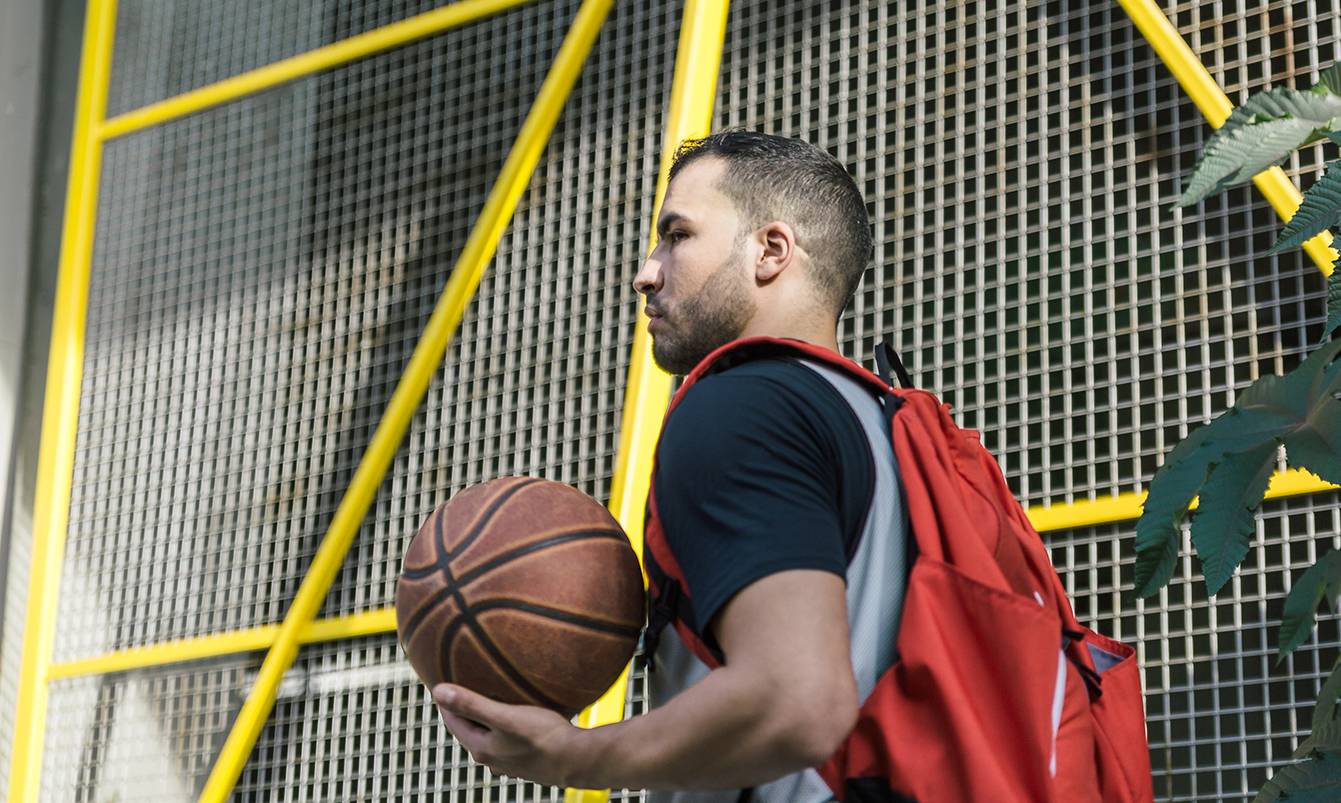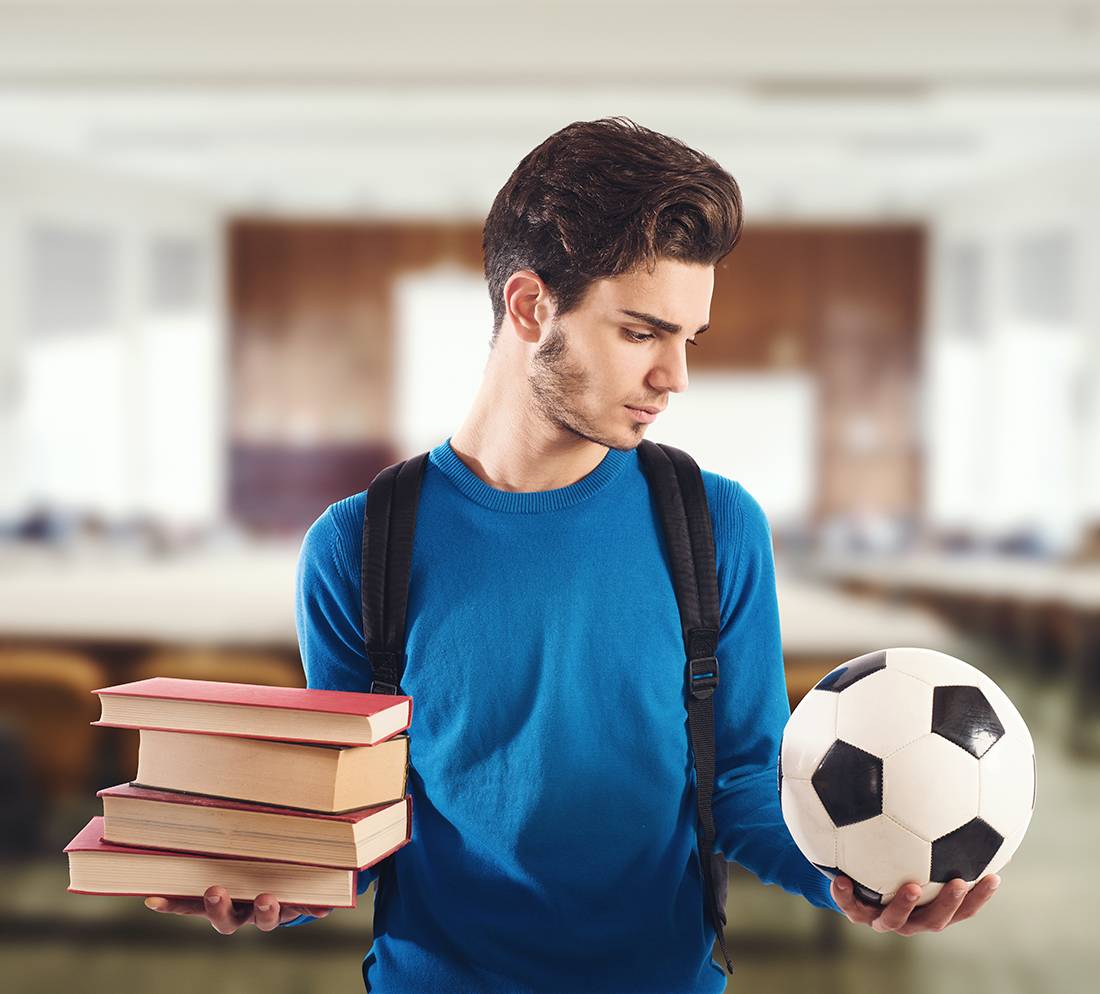Jayme Blaschke | February 14, 2023

It’s time to retire the “dumb jock” stereotype for good.
A team of researchers from Texas State University has determined this myth, despite its persistence in popular culture and media, has little basis in fact. Rather than student-athletes focusing on on-field performance to the detriment of their classroom education, the Texas State team found virtually no link between enthusiasm for athletics and academic performance. Instead, the factors having the greatest impact on student-athlete academic success was the ability to balance their academic and athletic identities and monitor their time and goals.
The Texas State researchers—Agustín J. García, a doctoral student in developmental education, Carlton J. Fong, an assistant professor in the Department of Curriculum and Instruction, and Yvette M. Regalado, a doctoral student in developmental education—published their findings, “Motivational, Identity-Based, and Self-Regulatory Factors Associated with Academic Achievement of US Collegiate Student-Athletes: A Meta-Analytic Investigation,” in the journal Educational Psychology Review.

The team analyzed 73 research studies that surveyed student-athletes on athletic and academic motivation and linked their responses to college grades. Based on previous research, the team then considered whether student-athletes who were more interested in playing sports than learning in classes performed poorly in school.
The researchers also explored whether grades improved when student-athletes balanced their dual athlete and student identities. The researchers defined how student-athletes balanced these roles in two ways: how student-athletes viewed themselves (either as more of an athlete than a student, or seeing their academic role as equally important); and student-athletes’ strategies for juggling many responsibilities (such as time-management and goal setting).
The researchers found that the link between grades and motivation for sports was weaker than expected, particularly for women athletes. In other words, athletes with high athletic motivation got similar grades as those with lower athletic motivation.
This research suggests that campus leaders and athletic departments can support academic success by promoting student-athletes’ dual roles and helping them to set goals and develop time management strategies. Also, professors who are inclined to write-off athletes as simply focused on sports should make greater efforts to support the student-athletes’ diverse goals. Interventions can be designed and used to improve athletes’ motivation for school.
Although student-athletes need good grades for academic eligibility, higher education institutions should continue to strive for academic excellence rather than settling for minimum GPA requirements. Colleges can support how athletes balance their dual identities and transition to careers after graduation.
Although the study provides a clearer picture about how motivation factors are linked with student-athletes’ grades, several questions remain unanswered. Do the same patterns exist for other outcomes such as graduation? How do endorsement deals and transferring affect student-athletes’ academic motivation?
The Texas State researchers are continuing to study how social factors such as faculty-student relationships and campus climate affect student-athletes’ academic success.
Share this article
For more information, contact University Communications:Jayme Blaschke, 512-245-2555 Sandy Pantlik, 512-245-2922 |
